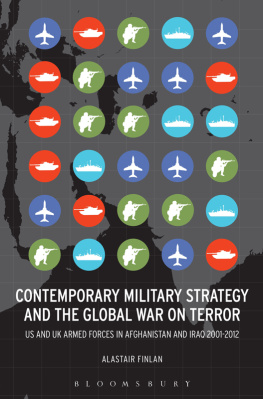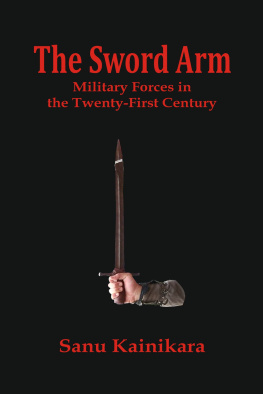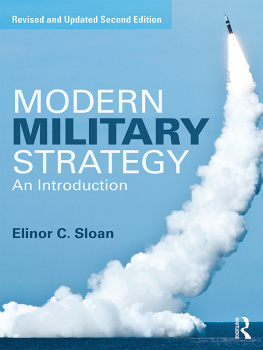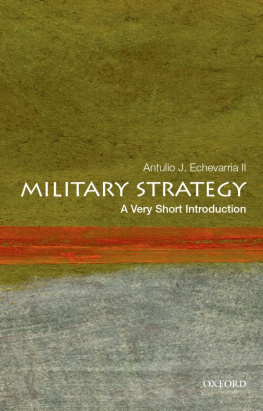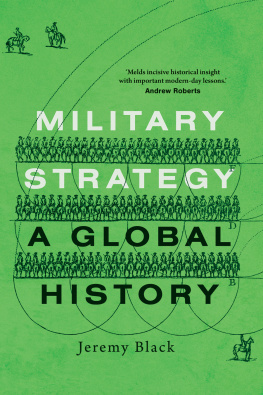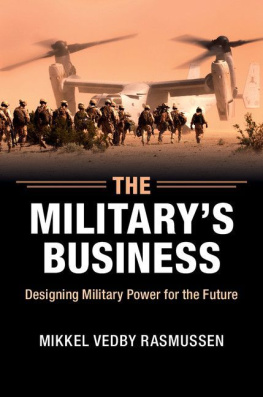
CLASSICS
OF
SEA POWER

The Classics of Sea Power series makes key works of professional naval thought readily available in uniform, authoritative editions. Each book is chosen for its eloquence, incisiveness, and pertinence to the great ideas of naval theory, strategy, tactics, operations, and logistics. The series is a companion to histories, anthologies, and other interpretative writings, providing a depth of understanding that cannot be had from reading secondary sources alone.
Rear Admiral J. C. Wylie was the first serving naval officer since Mahan and Luce to become known for his writings on strategy and theory. Military Strategy is a reaction to questions raised in the 1950s during the debate on unification of the U.S. armed forces. In it Wylie attempts to break down deep-seated service parochialism with a comprehensive approach to strategy.
Another of his purposes was to ensure that sea power and maritime strategy were thoroughly appreciated. But Wylie also knew the limits of navies, and was quick to say that sea power is always applied with an eye on events ashore. Similarly, he was both appreciative and critical of air-power and land-power advocates. He was ahead of his time in seeing that guerrilla warfare was a fourth major element of strategic theory. Now, in a personal postscript for this edition, he adds a fifth component, the strategy of terrorism.
Wylies general theory of power, centered on the sturdy concept of control as its end and developed with an original exposition of cumulative and sequential strategies, is as useful today as when he wrote.
SERIES EDITORS
|
John B. Hattendorf | Wayne P. Hughes, Jr. |
Naval War College | Naval Postgraduate School |
Newport, Rhode Island | Monterey, California |

Military Strategy

Rear Admiral J. C. Wylie
Courtesy U.S. Naval Institute Photo Archive

This book has been brought to publication with the generous assistance of Marguerite and Gerry Lenfest.
Naval Institute Press
291 Wood Road
Annapolis, MD 21402
This book was originally published in 1967 by Rutgers University Press, New Brunswick, New Jersey.
Military Strategy 1967 by Rutgers, The State University
Introduction and postscript 1989 by the United States Naval Institute, Annapolis, Maryland
Reflections on the War in the Pacific 1952 by the United States Naval Institute, Annapolis, Maryland
On Maritime Strategy 1953 by the United States Naval Institute, Annapolis, Maryland
Why a Sailor Thinks Like a Sailor 1957 by the United States Naval Institute, Annapolis, Maryland
All rights reserved. No part of this book may be reproduced or utilized in any form or by any means, electronic or mechanical, including photocopying and recording, or by any information storage and retrieval system, without permission in writing from the publisher.
First Naval Institute Press paperback edition published in 2014.
ISBN: 978-1-61251-515-1 (eBook)
Grateful acknowledgment is made for permission to quote from the following material:
The Command of the Air by Giulio Douhet, translated by Dino Ferrari, 1942 by Coward-McCann, Inc.
On War by Karl von Clausewitz, translated by O. J. Matthijs Jolles, 1943 by Random House, Inc.
The Library of Congress has cataloged the hardcover edition as follows:
Wylie, J. C. (Joseph Caldwell)
Military strategy : a general theory of power control / J. C. Wylie ; with an introduction by John B. Hattendorf and a postscript by J. C. Wylie.
p. cm.(Classics of sea power)
Reprint with a new introd. and postscript. Originally published: New Brunswick, N.J. : Rutgers University Press, 1967.
Includes bibliographical references and index.
1. Strategy. 2. Naval strategy. I. Title. II. Series.
U162.W9 1989

 Print editions meet the requirements of ANSI/NISO z39.48-1992 (Permanence of Paper).
Print editions meet the requirements of ANSI/NISO z39.48-1992 (Permanence of Paper).
22 21 20 19 18 17 16 15 14 9 8 7 6 5 4 3 2 1
First printing

CONTENTS



R EAR ADMIRAL J. C. WYLIE is a rarity among American naval officers. He was the first serving officer since Luce and Mahan, half a century before him, to become known for writing about military and naval theory. First and foremost Wylie was a sailor, a sea officer, and an accomplished ship-handler, but at the same time he became a careful thinker about strategy.
Wylie came to be interested in abstract theory gradually, through experience and observation during his naval career.World War, his role in the development of the Combat Information Center, and his postwar experience with ergonomics. The stimulation and the time for reflection that he had at the Naval War College during the period when the U.S. Navy was struggling through the bureaucratic battles of service unification were also important elements of his development. All of the separate influences combined to bear fruit through his work with the strategy and sea power study group at the Naval War College in the 1950s. These were Wylies intellectual steps that led to
Next page



